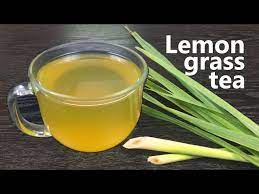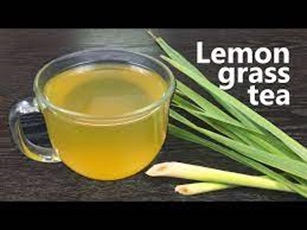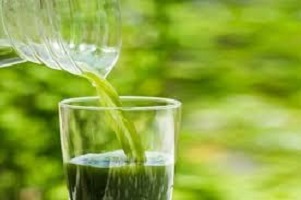Lemon Grass Tea Side Effects
Lemon Grass Tea Side Effects

A common folk cure for boosting immunity, relieving pain, and promoting sleep is lemongrass tea. However, some individuals may be allergic, and this could result in negative side effects like dry mouth or disorientation. Citronella, another name for lemongrass, is a tall, spiny shrub. It tastes citrusy and has a crisp, lemony scent.
Other side effects of lemongrass:
- Dry mouth.
- Increased appetite.
- Allergic reactions like rash and itching.
- Dizziness
- Tiredness
- Frequent urination.
What is the definition of a lemon?
An acid fruit with many seeds it is a pale-yellow rectangular berry that is grown on a tiny, prickly citrus tree (Citrus limon) and it has a rind that can be used to extract fragrant oil
Table of Contents
What is lemon grass?
This fragrant, long-living plant is indigenous to South India and Sri Lanka. It is now widely grown in tropical America and Asia. Lemongrass leaves that have been freshly chopped and gently dried are used to extract essential oils, which are then utilized for therapeutic purposes.
Is lemon related to lemongrass? Are they the same
On a tree, lemons grow. As its name suggests, lemongrass is a kind of grass. Although they are unrelated, they do share a scent with lemon verbena and lemon tea tree, as well as other plants that have a lemony scent. This ingredient is called citral.
Lemon Grass Tea: Nutritional Value of Lemongrass:
Lemongrass has the following nutritional value:
Number of Nutrients/100 g
- 3 g of carbohydrates
- 82 g of proteins
- Fats: 0.49 g
- 99 kcal of energy
- 17 milligrams of iron
- 65 mg of calcium
- 6 milligrams of sodium
- Potassium 723 mg
- 101 milligrams of phosphorus
- 60 mg of magnesium
- 22 milligrams of manganese
- 266 milligrams of copper
- 23 milligrams of zinc
- 7 µg of selenium
- 6 IU of vitamin A
- Thiamine, vitamin B1, 0.065 mg
- 135 mg of vitamin B2 (riboflavin)
- Niacin (vitamin B3): 1.1 mg
- Pantothenic acid, or vitamin B5, is 0.05 mg.
- B6 vitamin (0.08 mg)
- 75 µg of vitamin B9 (folate)
- 6 milligrams of vitamin C
How to make lemon grass tea: Lemon Grass Tea Recipe
Lemon Grass Tea Ingredients:
- 950 ml or 4 glasses of water
- Two cups (150 g) stalks of lemongrass
- 50 grams, or 1/4 cup, sugar (optional)
- Cream, milk, honey, lime, ginger
Direction
Chop 2 cups of lemongrass leaves or stalks: Lightly bruise the stalks with the flat side of the knife. This will allow the aromatic oil inside the sturdy stalks to come out. After that, roughly chop the lemongrass with care. The approximate length of the pieces should be 1-2 in (1.3-2.5 cm).
- You can use the leaves of your home-grown lemongrass to make tea. However, there’s no need to bruise the leaves.
- Use a chopping board to chop the lemongrass to prevent dulling your knife or damaging your tabletop!
- You’ll need a different amount of lemongrass stalks because supermarket stores usually sell it already chopped.
Place 4 cups (950 ml) of water on high heat and bring to a boil: To prevent boiling over once it reaches a boiling point, transfer your water into a medium-sized saucepan or other pot of a comparable size. After that, put it on high heat on the stove and let it boil for a few minutes.
- Use caution when the water warms up. The pot is going to get hot!
Add the lemongrass and continue boiling the water for 5 minutes: Drop the chopped lemongrass into the boiling water with caution. If necessary, use a long-handled spoon to stir to make sure the lemongrass is fully immersed, and then soak it in the boiling water for around five minutes
- If the water is boiling quickly, it should continue to bubble when you stir it.
- When you lower the lemongrass into the water, hold it near the surface. Its likelihood of splashing back into you will be decreased as a result.
Tip: To prepare tea in a teapot, bring the water to a boil, then add the chopped lemongrass to the teapot along with the heating water. The mixture should steep for five to ten minutes, or until it becomes aromatic, cover the teapot with a cloth or tea cozy.
Pour the mixture through a strainer to remove the stalks: This will help to ensure that you don’t inadvertently swallow any lemongrass fibers. Transfer the tea into a pitcher or another container using a colander or fine mesh strainer
- Although the fibers from the stalks of lemongrass are edible, they may not be a pleasant addition to a relaxing cup of tea.
- You have the option to strain the tea straight into your teacup.
Serve right away if you prefer warm tea: A warm cup of lemongrass tea tastes great in the morning or on a chilly day. Enjoy the tea as soon as it cools down enough to drink after straining it
- If desired, sweeten the tea in your cup with a little sugar or honey.
Chill the mixture to make iced tea: Refrigerate your pitcher of lemongrass tea for about an hour if you’d rather have it that way. This will produce a cool, zesty herbal tea that tastes great with food or on a hot day.
- Before putting the tea in the fridge, whisk in 1/4 cup (50 g) of sugar to produce sweetened iced tea.
- Serve the cold tea over ice for optimal results.
Benefits of lemon grass tea
It has antioxidant properties
Numerous antioxidants found in lemongrass can aid in scavenging disease-causing free radicals from your body. Notable antioxidants include swertiajaponin, isoorientin, and chlorogenic acid. These antioxidants could be able to stop the coronary artery cells from malfunctioning.
It has antimicrobial properties
Because of its antibacterial qualities, lemongrass tea may be used to treat cavities and oral infections. When it came to the microorganisms that cause tooth decay, Streptococcus mutans, lemongrass essential oil showed antibacterial properties.
Further research suggests that in vitro, lemongrass oil and silver ions may cooperate to combat a variety of bacteria and fungi.
It has anti-inflammatory properties
Lemongrass has two primary components, citral, and geranial, which are thought to be responsible for its anti-inflammatory properties. Many illnesses, including heart disease and stroke, are known to be influenced by inflammation.
These substances are purported to assist in inhibiting the release of specific inflammatory indicators within your body.
It may reduce your cancer risk
It’s also believed that lemongrass’s citral possesses strong anticancer properties against certain cancer cell types. Lemongrass has several ingredients that combat cancer. This happens through either directly inducing cell death or strengthening your immune system to make your body more capable of fending against cancer on its own.
Occasionally, chemotherapy and radiation patients may receive adjuvant therapy in the form of lemongrass tea. It is only appropriate to use under an oncologist’s supervision.
It may help promote a healthy digestive system
An effective home cure for upset stomach, cramping in the stomach, and other digestive issues is a cup of lemongrass tea. According to a 2012 study, lemongrass may also be useful in preventing stomach ulcers in rodents.
According to the study, aspirin and ethanol can harm the stomach lining, while lemongrass leaf essential oil can help shield it. Gastritis is frequently caused by using aspirin regularly.
It may act as a diuretic
Natural health professionals are aware of lemongrass’s diuretic properties. A diuretic increases the frequency of urination to help your body get rid of extra salt and fluid. If you have edema, liver failure, or heart failure, diuretics are frequently recommended.
Rats used in a 2001 study to assess the effects of lemongrass tea demonstrated diuretic action comparable to that of green tea without causing harm to organs or other negative side effects. Rats were given lemongrass tea for six weeks as part of the study.
It might assist in lowering excessive systolic blood pressure.
In a 2012 observational study, 72 male participants drank green tea or lemongrass tea. The blood pressure of those who drank the lemongrass tea increased somewhat in the diastolic range but decreased moderately in the systolic.
It may help reduce high systolic blood pressure
While these results are exciting for those with high systolic blood pressure, males with heart issues should use lemongrass sparingly, according to the researchers.
It may help regulate your cholesterol
You can prevent hazardous reductions in heart rate or elevation of diastolic blood pressure by doing this. Your risk of a heart attack or stroke may increase if your cholesterol is high. According to a study that was printed in the reputable Journal of Advanced Pharmaceutical Technology & Research, animal studies using lemongrass oil extract showed a reduction in cholesterol. The dosage affected the amount of cholesterol that was reduced.
2011 saw additional mouse studies validate the long-term safety of up to 100 mg of essential oil of lemongrass per day. To find out if lemongrass tea offers the same benefits as lemongrass oil, more investigation is required.
It may help you lose weight
You can use lemongrass tea as a detox drink to increase your metabolism and aid in weight loss. However, the majority of anecdotal rather than scientific studies on lemongrass and weight loss are available. Lemongrass is a natural diuretic, so if you consume enough of it, you will probably lose weight.
Generally speaking, substituting herbal teas like lemongrass for soft drinks and other sugar-sweetened beverages in your diet may help you lose weight. But you shouldn’t limit your use of lemongrass tea. Your chance of adverse consequences may rise as a result. Try sipping water or other unsweetened beverages in between glasses of lemongrass tea.
It may help relieve symptoms of PMS
Hot flashes, bloating, and cramps during menstruation can all be naturally treated with lemongrass tea. Though there isn’t any specific research on lemongrass and PMS, its anti-inflammatory and stomach-soothing qualities might be helpful. Furthermore, lemongrass oil can aid in bodily cooling, per a reputable source article published in the Journal of Advanced Pharmaceutical Technology & Research.
Benefits of lemon grass tea and ginger tea
The warming, aromatic tea with citrus flavors of lemongrass and ginger. But in addition to being delicious, these herbs provide several scientifically supported health advantages. There’s more to drinking this tea than just feeling wonderful on the inside. Lemongrass and ginger both offer anti-inflammatory and digestive benefits. They may help improve stomach discomfort and reduce your chance of developing chronic illnesses.
The following are some justifications for using ginger and lemongrass tea to improve your health:
- Lower cholesterol is achieved by using lemongrass.
- Facilitates circulation.
- Lower the chance of cardiac issues.
- Enhances the amount of nutrients your body absorbs.
- Bolsters the body’s defenses against illnesses and infections and the immunological system.
- Because it cleanses the skin from the inside out, it is also advantageous.
- It promotes renal health.
- Packed with antioxidants, it improves Andody’s general health and helps to delay the onset of aging symptoms.
- It can improve your quality of sleep at night because it is used to treat insomnia.
Lemon grass benefits for skin
Help reduce the appearance of shine: Lemongrass can lessen the look of oil on the skin without depriving it of moisture, which is important for combination skin types.
Lemongrass is a natural astringent: lemongrass helps to minimize the appearance of pores by refining their appearance.
Lemongrass is an excellent ingredient for scrubs and masks when your skin needs an extra boost. It aids in thorough cleansing and detoxification by removing dirt and pollutants from the skin’s surface.
When is the best time to drink tea lemongrass tea for weight loss?
Morning
You should drink lemongrass tea if you are concerned about your weight gain and would like to reduce it. It facilitates calorie burning and speeds up your metabolism. Eating it first thing in the morning helps to quickly reduce fat without contributing to obesity.
Uses of lemongrass tea
There are many health benefits to lemongrass, including flavonoids, phenolic substances, and antioxidants. Some of these are catechol, chlorogenic acid, luteolin, glycosides, quercetin, kaempferol, elemicin, and caffeic acid.
Lemonal, also known as citral, is the primary ingredient in lemongrass and possesses antifungal and antibacterial properties in addition to a characteristic lemon scent. Lemongrass supports healthy cholesterol levels since it has anti-hyperlipidemic and anti-cholesterolemic qualities.
Moreover, lemongrass tea aids in the body’s removal of poisons and hazardous waste. Lemongrass has a diuretic action that increases the amount and frequency of urination, which supports the maintenance of a clean system, aids in the removal of accumulated fat, and promotes digestive health.
Side effects of lemon grass tea
Despite the numerous health advantages of lemongrass tea, there may occasionally be some negative consequences. After consuming lemongrass tea, those who are prone to food allergies may develop allergies such as hives or an itchy skin rash. Due to its ability to initiate menstrual flow, pregnant women are concerned that lemongrass may miscarry their unborn child. Patients with kidney or liver disorders ought to avoid drinking lemongrass tea.
What happens if you drink lemongrass tea every day?
According to the findings of a 2015 study, consuming infusions of lemongrass tea every day for 30 days may raise the body’s red blood cell count, packed cell volume, and hemoglobin concentration. 105 human individuals had blood tests taken at the beginning of the trial as well as after 10 and 30 days.
Is lemongrass good for the liver and kidneys?
Because lemongrass has diuretic qualities, it initiates the process of eliminating toxic substances and superfluous compounds from the body. As a result, the body has lower than usual levels of uric acid and the liver and kidney operate better.
Does lemongrass cleanse the kidney?
Drinking lemongrass tea can help remove toxins from the kidney, liver, bladder, and digestive tract. It Has several Antioxidants That Might Help Stop Coronary Artery Cell Dysfunction. Lemongrass tea’s blend is a perfect calming herb with great healing properties.
What illness does lemongrass treat?
Lemongrass is now cultivated in North and South America, Australia, and Africa and is widely used as a natural cure for high blood pressure, neurological disorders, and digestive difficulties. It is said that lemongrass possesses antifungal and antibacterial qualities. It has been used historically to treat fever and ease discomfort.
Is lemongrass good for urinary tract infections?
In conclusion, urinary tract infections caused by pathogenic bacteria can be treated with methanolic extract of lemongrass alone or in conjunction with certain antibiotics.
Can I drink lemongrass tea on an empty stomach?
Tea made with lemongrass is a natural cleanser. It aids in the removal of toxins from the body when taken in the morning on an empty stomach. It aids in blood cleansing as well. You can also eliminate skin-related issues with this.
Is lemongrass an antibiotic?
Although the main ingredient in lemongrass essential oil, citral, is known to have antibacterial properties, other constituents have not yet been thoroughly investigated from this angle.
Can lemongrass cure a yeast infection?
The antifungal activity of lemongrass oil and its main ingredient, citral, against Candida spp. Was assessed using a variety of yeasts. The antifungal activity results are compiled in Tables 1 and 2. They demonstrate that the citral and lemongrass oil worked against all species of Candida, particularly C.
Is lemongrass good for menstruation?
Lemongrass contains myrcene, which acts as an analgesic or pain reliever. Menstrual discomfort is alleviated by the antinociceptive activity of citronellol, which is found in lemongrass, according to research published in the Journal of Medicinal Food. Yeast infections are avoided by its antiseptic and antibacterial qualities.
Can I mix turmeric with lemongrass?
Organic Lemongrass Tea with Turmeric
This is a great post-meal tea since it helps keep the digestive system functioning at its best and helps avoid the unpleasant symptoms of indigestion. This caffeine-free mixture is calming to the body and mood, making it the perfect cup of tea for the evening.
Does lemongrass reduce belly fat?
This tea’s high polyphenol content aids in controlling the rate of metabolism. This speeds up the pace at which food is absorbed and helps burn calories. As a result, it reduces the amount of fat in the torso by burning fat and oxidizing fatty acids in the body.
Can I put milk in my lemongrass tea?
Firstly, bring a pot of water to a boil and add loose tea, tea leaves, or tea bags. After that, simmer for ten to fifteen minutes. Simmer for a few more minutes after adding milk. Then, serve hot, with your choice of sweetener added.



